| Srl | Item |
| 1 |
ID:
083209
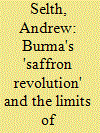

|
|
|
|
|
| Publication |
2008.
|
| Summary/Abstract |
The demonstrations in September 2007 were the most significant civil protests seen in Burma since the ill-fated pro-democracy uprising of 1988. The military government's brutal response to the latest unrest prompted an unprecedented level of diplomatic activity and a rare consensus on the need for political change. Since then, however, efforts to resolve the crisis have withered away, underlining the international community's inability over the past 20 years to make a significant impact on the situation in Burma. Neither the principled approach of some countries and organisations, nor the more pragmatic attitude adopted by others, has persuaded the regime to abandon any of its core positions. Indeed, by demonstrating the international community's continuing disagreement over Burma, and the limited policy options available, the lack of concerted action since the protests has probably encouraged the regime's obduracy and increased its confidence that it can survive external pressures. An appreciation of the generals' threat perceptions may help the international community to understand the regime's intransigence, but it is still difficult to see what policies can be effective against a government that puts its own survival before accepted norms of behaviour and the welfare of its people. Real and lasting change will have to come from within Burma itself, but the events of 2007 suggest that this is a distant prospect.
|
|
|
|
|
|
|
|
|
|
|
|
|
|
|
|
| 2 |
ID:
083211
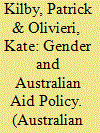

|
|
|
|
|
| Publication |
2008.
|
| Summary/Abstract |
The issue of gender and development has been an important part of the development discourse since the Mexico City Women Conference in 1973. This concern has been very slow to transform itself into policy. For development agencies including AusAID it has been a subsidiary policy area or an add-on, as a recipe might say'add women and stir'. The White Paper of 2007 brought gender to the centre of policy as an overarching principle. The question that arises is the extent to which these policies fit into or are driven by the neo-liberal paradigm underpinning the aid program, or if these policies can challenge it by positing a rights agenda. The 2007 Gender policy tries to sit between the two in that it focuses on the economic role that women can play in fostering growth on the one hand, and the denial of human rights that marginalisation and disempowerment represents. This paper will explore the development of gender policy in AusAID, and compare it with the development of policy of other agencies that follow the neo-liberal framework in particular the World Bank and ADB. Finally the paper will make some suggestions for the new Labor government to strengthen the Policy
|
|
|
|
|
|
|
|
|
|
|
|
|
|
|
|
| 3 |
ID:
083212


|
|
|
|
|
| Publication |
2008.
|
| Summary/Abstract |
AusAID has supported land titling projects in Southeast Asia with the World Bank for over two decades. These involve the first-time issuance of a land title in cases where the ownership rights of current occupiers are largely assured. Reflecting neoliberal thinking on private property rights and development, the rationale is that titling builds land markets and increases tenure security, investment and access to institutional credit. However, international research indicates that land titling can be neither sufficient or necessary to deliver such benefits and, under some circumstances, can harm poor landholders' wellbeing. In this respect, attention is paid to political factors in addition to property rights per se which influence their tenure security. It is argued that the value which neoliberalism places on the exclusivity of ownership of land, to enable its efficient use and allocation, can be in conflict with the importance to poor people of secure access and use rights. If AusAID is to fully commit to poverty reduction goals, then there will need to be more attention paid to the social justice dimensions of land distribution in Southeast Asia and elsewhere.
|
|
|
|
|
|
|
|
|
|
|
|
|
|
|
|
| 4 |
ID:
083213
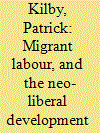

|
|
|
|
|
| Publication |
2008.
|
| Summary/Abstract |
The zeal with which the free movement of goods is pursued through the World Trade Organisation, or the free moment of capital promoted by the International Monetary Fund is contrasted by the hostility of most government and international organizations towards the free movement of labour
|
|
|
|
|
|
|
|
|
|
|
|
|
|
|
|
| 5 |
ID:
083217


|
|
|
|
|
| Publication |
2008.
|
| Summary/Abstract |
The hype about the potential for terrorism in Melanesia due to the region's weak and failing states has obscured some of the less newsworthy but equally important developments. One of these is the slow but steady growth in the popularity of Islam in Melanesia. This article reviews the limited literature on terrorism in the Pacific. It provides a brief historical overview of the growth of Islam in Melanesia on a country-by-country basis, and draws on a comparative case study and theories of culture and public goods to explore possible reasons for Islam's appeal. It argues that although Islam is likely to continue to grow, its growth is neither a necessary or sufficient basis for declaring terrorist threats to exist. The article emphasises the need to analyse the broader social factors behind Islam's growth as a basis for understanding the conditions through which potential threats to regional security might develop
|
|
|
|
|
|
|
|
|
|
|
|
|
|
|
|
| 6 |
ID:
083215
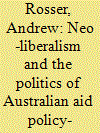

|
|
|
| 7 |
ID:
083210
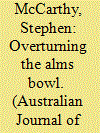

|
|
|
|
|
| Publication |
2008.
|
| Summary/Abstract |
The 2007 demonstrations in Burma posed the greatest threat to military rule there in almost twenty years. The involvement of thousands of monks across the country was of particular concern to the authorities as well as their threat of performing a religious boycott against them. This article traces the importance of Buddhism to the political legitimacy of rulers in Burma and examines how the authorities' relationship with the Sangha has undergone significant changes under military rule. It compares the 2007 demonstrations with earlier protests and examines how the regime's legitimacy has suffered as a result of yet another crackdown, significantly this time against demonstrations led by the largest institution outside of the tatmadaw.
|
|
|
|
|
|
|
|
|
|
|
|
|
|
|
|
| 8 |
ID:
083216


|
|
|
|
|
| Publication |
2008.
|
| Summary/Abstract |
Based on the turmoil of the 'crisis years' (1998-2003) and the Regional Assistance Mission to Solomon Island (RAMSI) years (2003-2007), this paper explores epistemological issues that deeply divide the way that Solomon Islanders look at prosperity and good government and the way that foreign aid donors, RAMSI and Australia see the future for Solomon Islands. State-building or re-building is not the same as nation-building based on local concepts of the good life. The stakes are high, and as the Sogavare Government (2006-2007) indicated, substantial changes are needed to RAMSI, with a clear exit strategy or amalgamation of its central features into the central government structure. Unless RAMSI can come to terms with Solomon Islands' epistemological and related political issues, there is no future for the Mission. The paper looks first at the post-RAMSI period, before concentrating on epistemological and political differences, and uses Malaita Province as an example of local circumstances that apply in all areas of the troubled nation. The argument on the epistemology of development is drawn from the writings of David Gegeo and Karen Watson Gegeo, and my personal experience
|
|
|
|
|
|
|
|
|
|
|
|
|
|
|
|
| 9 |
ID:
083214
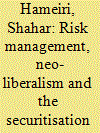

|
|
|